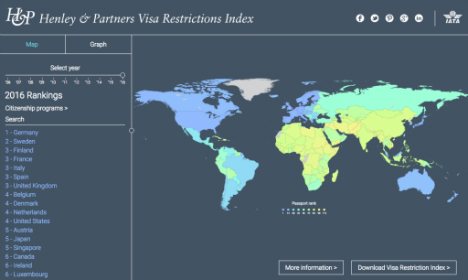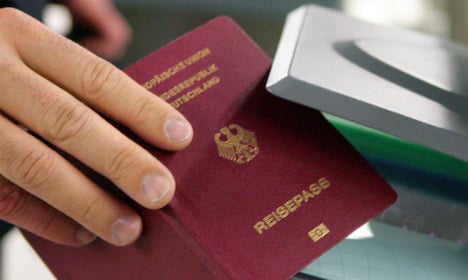It's a good time to be German – or even on your way to becoming one.
Citizenship and immigration advisors Henley & Partners released their annual Visa Restriction Index last week, crowning Germany the country with the greatest “travel freedom” accorded to their citizens by other nations (check out the interactive map here).
 Image: Screenshot/henleyglobal.com
Image: Screenshot/henleyglobal.com
Germans don't have to think twice about bureaucratic ordeals when it comes to going abroad. In 177 out of the 281 countries included in the survey, they can simply drop in free of care and paperwork.
But freedom of movement is a familiar feeling to Germany's 80 million inhabitants as it's the third time in the row that they've taken the title, closely followed by Sweden.
The United Kingdom comes in third with a score of 175 alongside Finland, France, Italy, and Spain, while the United States share their fourth rank with Belgium, Denmark, and the Netherlands.
But other countries like Colombia and Portugal have been climbing the ladder to travel freedom as well.
For tips and tricks on how to do well, some countries might want to sneak a peak at the Portuguese: after launching the Golden Visa Program investor migration scheme in 2012, they clambered up to 6th place this year.
Since a country's ability to obtain visa waivers is strongly correlated to its diplomatic relations with other countries, the results indicate that Germany has been able to play well with others.
A press release by Henley & Partners added that visa requirements are shaped by “reciprocal visa arrangements, security risks and the risks of visa and immigration rules violations.”
The German Foreign Ministry declined to comment on the study when contacted by The Local.
SEE ALSO: World names Germany 'best country ever'




 Please whitelist us to continue reading.
Please whitelist us to continue reading.
Member comments